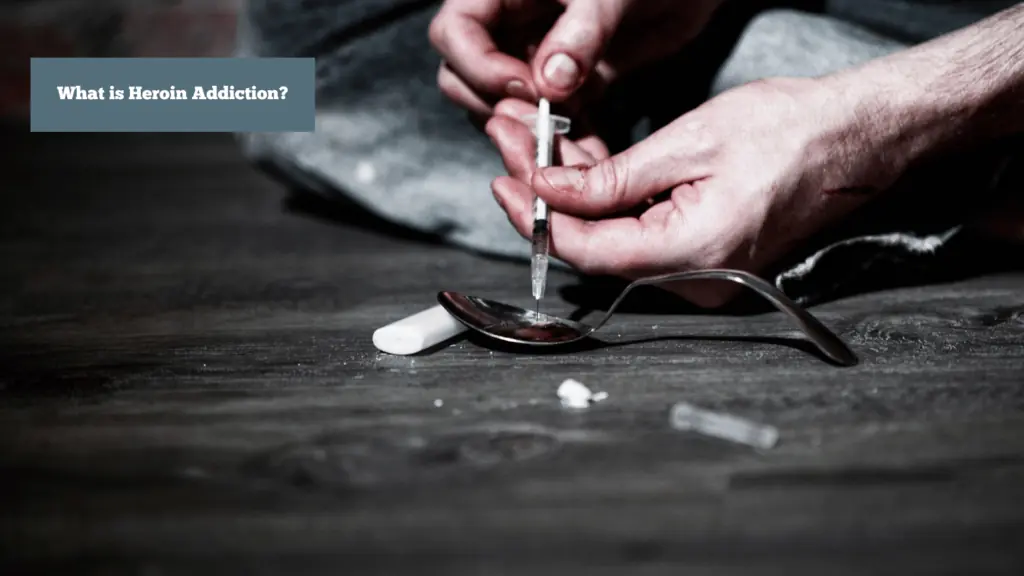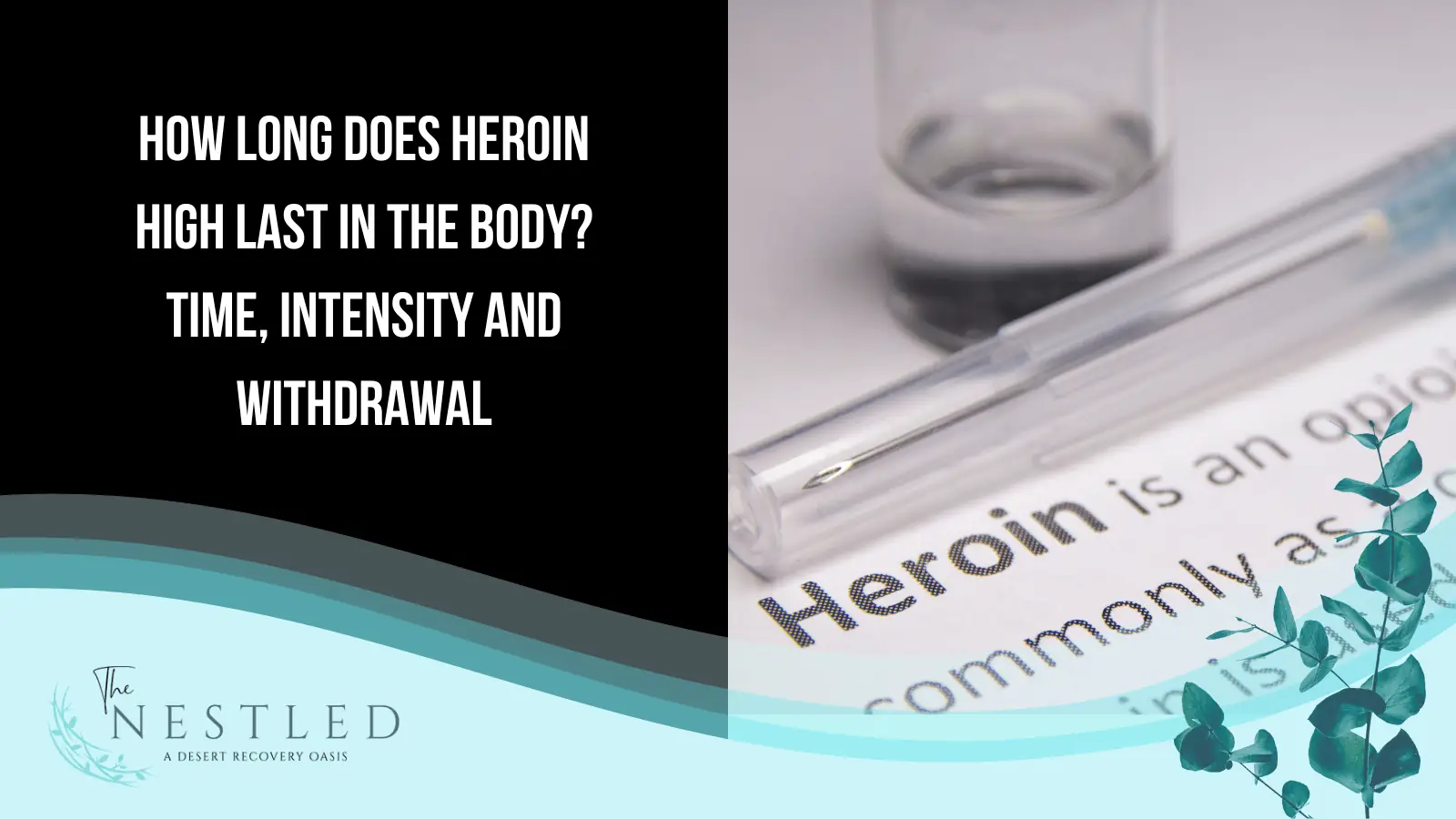Heroin addiction is recognized as a severe neuropsychological disorder characterized by an overwhelming urge to keep using heroin for its euphoric effects. Individuals addicted to heroin persist in their use despite adverse impacts on their health, social interactions, and general well-being. Heroin, an opioid, alters the brain’s reward mechanism, prompting an abnormal release of chemicals such as dopamine. This results in an intense sense of joy or a “high.”
The heroin high is noted for its quick onset but brief duration. The euphoric stage, particularly following intravenous use, can reach its peak within minutes and might persist for a few hours. The depth and longevity of the high vary based on several factors like the amount used, heroin’s purity, and the user’s unique physiological makeup. Following the peak, users often slip into several hours of lethargy.
The fleeting nature of heroin’s enjoyable effects often drives users to consume it more frequently, trying to maintain the euphoria and deepening their addiction. The powerful addictive qualities of the drug, combined with the user’s aim to replicate the short-lived high, highlight the grave nature of heroin addiction. This continuous usage, intensified by the drug’s tendency to build tolerance (requiring increasingly larger doses for the same euphoric effect) and physical dependence, plays a crucial role in the difficult journey to overcome addiction to heroin.

What is Heroin Addiction?
Heroin addiction is a chronic, relapsing disorder characterized by a compulsion to seek and use heroin, despite harmful consequences. The addiction often develops partly due to the drug’s short-lived high, typically lasting only a few minutes to a few hours, leading users to consume more heroin more frequently to maintain the euphoria or stave off withdrawal symptoms.
This pattern of repeated use drastically alters the brain’s chemistry and circuitry, reinforcing dependency on the substance. The fleeting nature of heroin’s high, coupled with its profound impact on the brain’s reward system, significantly accelerates the journey from initial use to addiction.
How Long Does Heroin High last?
The duration of a heroin high varies, typically lasting for a few minutes to several hours. The initial euphoric rush is brief, often peaking within minutes, especially if injected, followed by a few hours of a drowsy, sedated state. The overall length and intensity of the high depend on the dose and method of administration.
- Timeframe of the Onset of Effects:
- Injection: Effects can begin within seconds to a few minutes.
- Smoking: Effects start within 10 to 15 minutes.
- Snorting: Effects are felt within 10 to 20 minutes.
- Peak: Usually reached within a few minutes to an hour, depending on the method of use.
- Duration: High can last for several hours, often ranging between 3 to 5 hours
When does Peak High of Heroin Take Place?
The peak high of heroin, often described as a rush, typically occurs shortly after the drug is administered, especially with methods that deliver the drug quickly into the bloodstream, such as intravenous injection. This intense feeling of euphoria can arise within seconds to a few minutes after injection and may last for several minutes.
The rapid onset and short duration of peak euphoria are key factors contributing to heroin’s high addiction potential, as users may quickly seek repeated doses to recreate this intense sensation.
How does the short length of heroin high affect its addictiveness?
The short-lived high of heroin drives its addictiveness. Users often quickly seek more of the drug to maintain the fleeting euphoric sensation, leading to frequent use. This pattern can rapidly escalate into physical dependence and tolerance, where higher doses are needed for the same effect, increasing the risk of addiction and overdose.
How Long does Heroin Stay in the System?
Heroin has a relatively short half-life, typically around 30 minutes, meaning it’s metabolized and leaves the body quite quickly. However, detection times in the system can vary based on several factors like the amount used, frequency of use, individual metabolism, and the type of test used.
- Urine Test: In urine tests, heroin can typically be detected for up to 3 days after the last use.
- Blood Test: Blood tests have a shorter detection window, usually up to 6 hours post-use.
- Hair test: For hair follicle tests, which can track longer-term usage, heroin can be detected for up to 90 days after the last use.

What Factors Influence the Duration of a Heroin High?
Several factors influence the duration of a heroin high, including:
- Dosage: The amount of heroin used plays a crucial role in how long the effects last. Larger doses generally result in a more prolonged high.
- Purity: The purity of heroin can significantly affect its potency and the length of the high. Higher purity means more potent effects and possibly a longer duration.
- Method of Administration: How heroin is taken affects its onset and duration. Intravenous use leads to a quicker and more intense high but may wear off faster than when snorted or smoked.
- Individual Tolerance: Regular users often develop a tolerance to heroin, requiring more of the drug to achieve the same effect, which can alter the duration of the high.
- Metabolism and Overall Health: Individual metabolism rates and health factors like liver and kidney function can impact how quickly heroin is processed and eliminated from the body, influencing the duration of its effects.
- Use of Other Substances: The simultaneous use of other substances, especially other depressants like alcohol or benzodiazepines, can extend or intensify the high, but also increases risks of overdose and other negative effects.
How Fast Do Heroin Withdrawal Symptoms Start After Last Use?
Heroin withdrawal symptoms typically begin to manifest within 6 to 12 hours after the last use. The onset of these symptoms is relatively quick due to heroin’s short half-life. The withdrawal process can peak around the second or third day and can last for about a week, with some symptoms persisting for longer.
The severity and duration of withdrawal symptoms can vary based on the individual’s usage pattern, the duration of use, the amount typically used, and personal health factors. It’s crucial to seek medical guidance for a safe and more comfortable withdrawal process.
How Long Do Heroin Withdrawal Symptoms Last?
Heroin withdrawal symptoms generally last for about 5 to 7 days. However, this duration can vary depending on several factors, such as the length and intensity of heroin use, individual health, and metabolism. For long-term users or those with a heavy heroin dependency, withdrawal symptoms can last for 10 days or more.
Some individuals may experience prolonged withdrawal symptoms, known as Post-Acute Withdrawal Syndrome (PAWS), where certain symptoms like mood swings, anxiety, and sleep disturbances persist for weeks or even months after ceasing heroin use. Medical assistance and support can be crucial in managing these symptoms effectively.
How Quickly Does Heroin Tolerance Develop?
Heroin tolerance can develop rapidly, often within a few uses. Frequent use leads to the body becoming accustomed to the presence of the drug, requiring higher doses to achieve the same euphoric effects. This increase in dosage to maintain efficacy is a hallmark of tolerance development.
The speed at which tolerance builds varies among individuals based on factors like dosage, frequency of use, and individual physiological characteristics. The swift development of tolerance significantly contributes to the risk of addiction and overdose, making heroin a particularly dangerous drug.

Where To Get Treatment for Heroin Addiction?
For those seeking treatment for heroin addiction, numerous options are available, ranging from detoxification and medication-assisted treatment to counseling and long-term rehabilitation programs. The Nestled Recovery Center in Las Vegas provides a comprehensive approach to addiction treatment, focusing on individualized care plans that address both the physical and psychological aspects of addiction.
We offer detoxification services, inpatient treatment, and various therapies conducted by experienced professionals. It’s important to choose a treatment center that fits your specific needs and provides a supportive, effective path to recovery. Contact us at The Nestled Recovery Center for those looking to embark on a journey toward lasting sobriety.








